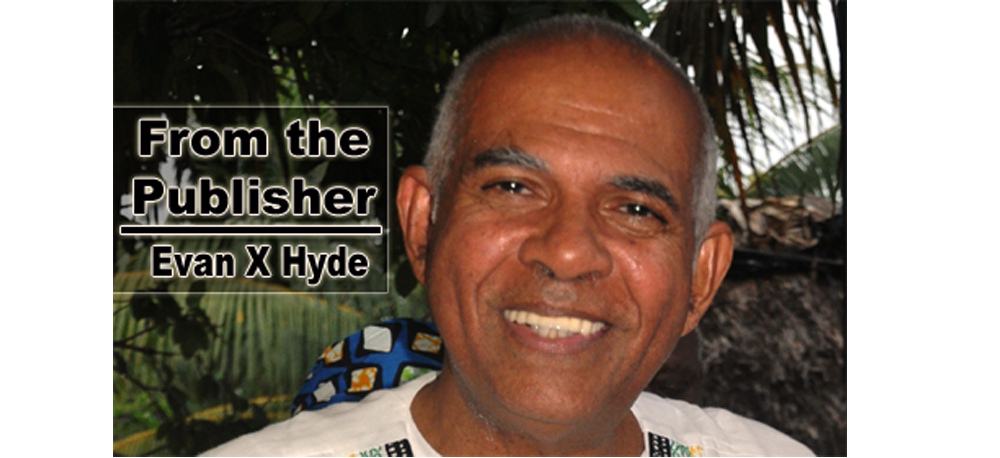There have been famous Belizean thinkers who never wrote, or if they did, did not publish their thoughts and material. The point is made because once you put your thoughts in writing, they are in black and white through the ages for analysis, criticism, condemnation, and so on.
Because of the nature of black and white (writing/publishing), one needs to be careful when writing. Yes, I suppose a writer is allowed to speculate, and especially when it appears that the cold truth cannot be ascertained, but writers, I repeat, have to be careful.
I am saying this because I want to speculate about a very serious matter, and in essence I am seeking indulgence before the fact, I suppose.
Some things have changed drastically in Belize in my lifetime. I have told you before that the man Tony Wright insists that these changes have taken place since Belize was granted political independence in 1981.
After the death of the Icaiche Maya leader, Marcos Canul, in Orange Walk in 1872, at the hands of the British West India Regiment, the colony of British Honduras became a very peaceful place, especially when compared to the republics around us — Mexico, Guatemala, and Honduras.
Although there were street uprisings here in 1894, 1919, and 1934, our people were not as violent, generally speaking, as those across our various borders. I believe this was because the British ruled us with the proverbial iron hand, and hangings 21 days after convictions for murder were routine.
As I grew up in the colony, I heard talking that we were a timid people. No one, except for cloistered clergy, wants to believe that they are timid, but the societies around us were so ferocious, relatively speaking. Our “national hero” in Belize was Brer Anancy, whose forte was cleverness, not violence.
Some of my generation consider the 1970s to have been a golden age in Belize where activities like sports, the arts, entertainment, and so on were concerned. If that is so, and I tend to agree, the timing of the decision by the superpower United States, in 1980, to support Belize’s independence, is intriguing, and worthy of analysis in light of what has happened here since then.
The fact of the matter is that, except for British Honduras, the Central American region was a kind of backyard for the United States of America, where its economic and military interests were concerned. The United States had famously declared a so-called Monroe Doctrine in 1823, which declared the Western Hemisphere an American preserve, and warned European nations not to enter or interfere in the region. In the case of Great Britain, which controlled British Honduras, the United States made an exception for a de facto situation, and hence the 1859 Treaty between the British and Guatemala was a diplomatic arrangement we have previously referred to in this column as being “godfathered” by the Americans.
If, in fact, the political independence of Belize in 1981 meant that the Americans had taken over the country in politico-military and other terms, then I suggest we begin to look at a different sort of scenario. In the first instance, we can say that Belize became a place of refuge for those fleeing from bloody civil wars which were being fought in the countries immediately around us — Guatemala, Honduras, Salvador, and Nicaragua, which were Central American republics which had been under implicit American hegemony from the nineteenth century.
There is a place called the State Department in Washington, the political capital of the United States, where brilliant Americans, trained in law, history, political science, economics, business and the like at great universities, sit each day and study regions like Central America, which are America’s responsibilities, so to speak. Because the United States is the most powerful nation in the world, for these thinkers to imagine and recommend it, is for it to be done.
We Belizeans own an exceptionally beautiful and wealthy piece of real estate — 8, 867 square miles. We call it The Jewel. But, what do we mean by “own”? There are areas in which we are fooling ourselves, beloved. There are decisions which fall under the heading of “realpolitik.” These decisions are made by the real power in the house, and they are handed down to us.
We Belizeans have excelled in running off our mouth. We know how to make noise. But, at the same time, we have now proven, beyond much of a shadow of a doubt, that we are Esau-like: we sell our birthright with an ease which is frightening. Look around you. How much of our waterfront remains in our hands? Perhaps it was never ours. But, we thought it was.
Today, it is for sure: Belize is a country which has been on sale for almost four decades. Our elites deposit their millions in offshore banks, the same way Mobutu did with the Congo’s riches.
Perhaps this is mere speculation. You may say: where is the proof? I would answer: I say what I say in black and white. History will decide.
Power to the people.

